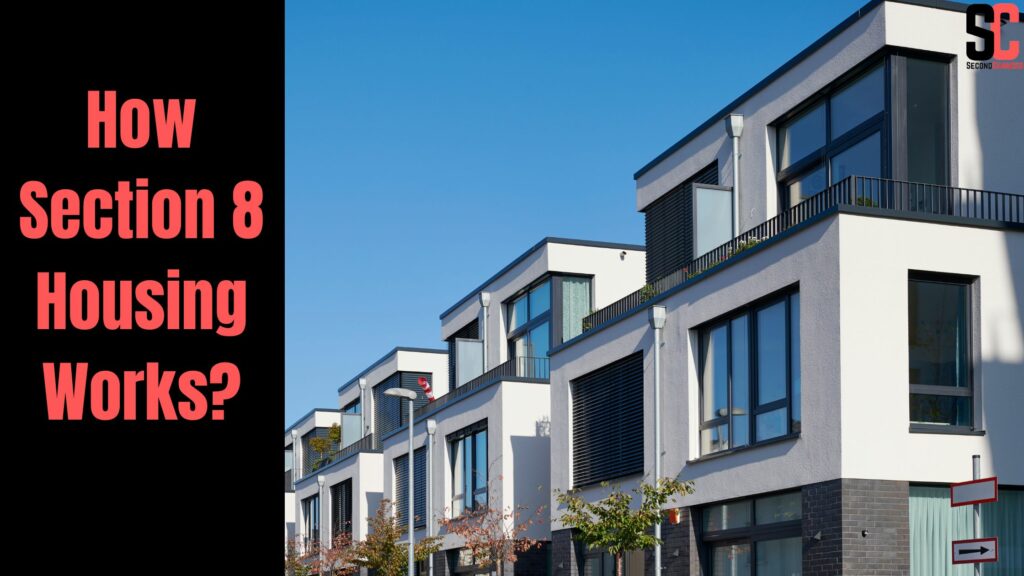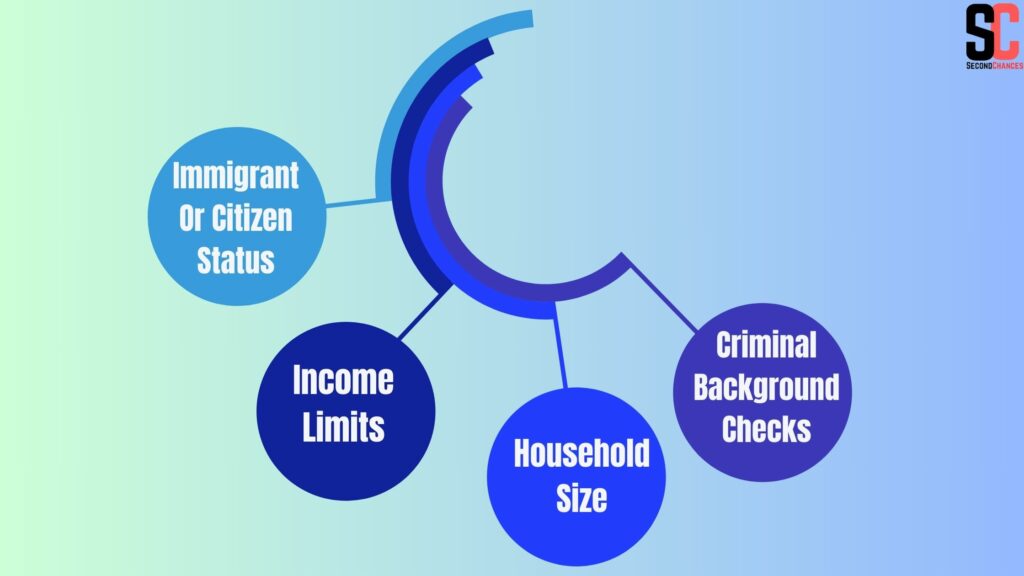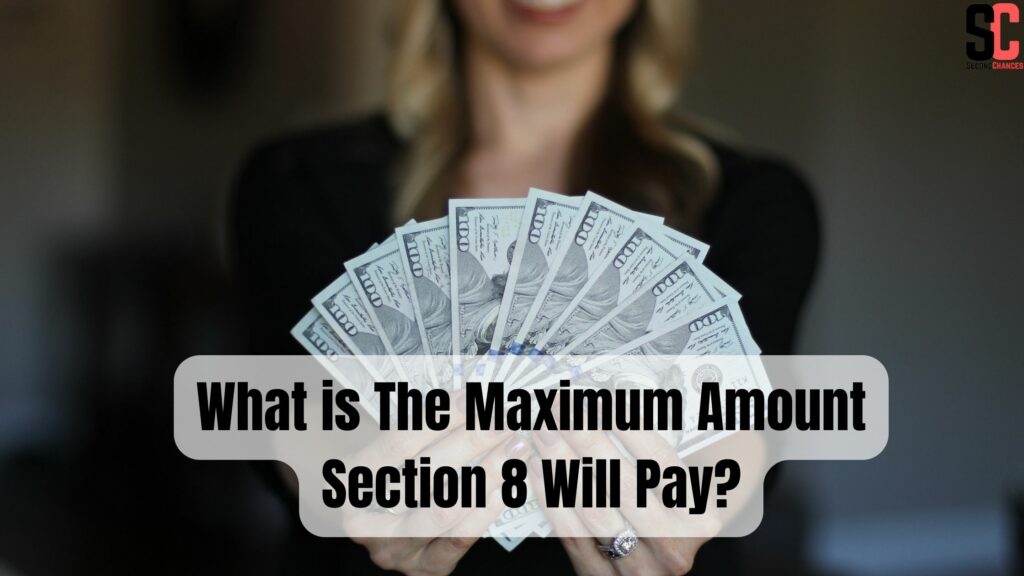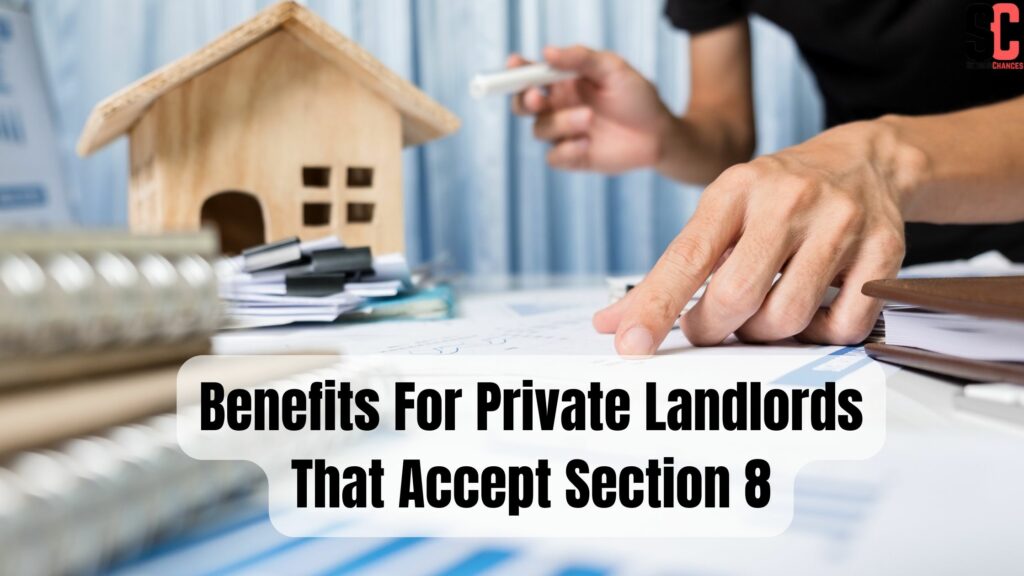Do you know how to find private Landlords That Accept Section 8 Housing Without any difficulties? Your search ends here.
Several low-income people are unable to afford to rent apartments in their areas. The United States of America has a variety of programs designed for low-income individuals.
Currently, Section 8 is funded and administered by the Department of Housing and Urban Development (HUD). Section 8 is usually called a housing choice voucher because it is a federally administered program. The program aims to provide low-income families with affordable housing.
A Section 8 tenant offers numerous benefits since this type of tenant is a permanent leaseholder. Landlords who accept Section 8 applicants can rent apartments to tenants with the program.
The tenant must first qualify for Section 8 housing. Finding Section 8 apartments for rent can be difficult, and it can cause you a lot of headaches.
Don’t worry, here, we will explore everything about How To Find Private Landlords That Accept Section 8 easily.
So, let’s get started.
Table of Contents
What Are Section 8 Housing Choice Vouchers?
The Section 8 Housing Choice Voucher Program (HCV) is the government’s major program to assist low-income, elderly, and disabled families in finding decent, safe, and sanitary housing in the private market.
Housing assistance is provided on behalf of the family or individual, which allows participation in finding and renting privately owned real estate, such as single-family homes, condominiums, and apartments. The participant has the option of choosing any housing that meets the program’s requirements, including single-family homes for rent that accept Section 8.
A public housing agency such as the Everett Housing Authority (EHA) administers the Housing Choice Vouchers locally.
A portion of the EHA’s funding comes from the U.S. Department of Housing and Urban Development (HUD), which administers the voucher program. An individual or family who receives a voucher must choose and locate suitable housing of the family’s choice where the owner agrees to rent.
A rental unit must meet minimum health and safety standards established by the EHA. The EHA pays the rent directly to the landlord for the benefit of the participating family. In this case, the family pays the difference between the subsidy and the actual rent charged by the landlord.
How Section 8 Housing Works?

It is administered and subsidized by your local Public Housing Authority (PHA). When you obtain a Section 8 voucher and live in a home that accepts them, your rent would be 30% of your monthly income. The government would cover the rest. There can be a substantial discount.
Types of Section 8 Housing Vouchers
The main types of Section 8 housing are:
Tenant-Based
The Housing Choice Voucher is attached to you, the applicant. As long as you qualify for the subsidy, you will continue to receive Section 8 assistance. The voucher can be used at any property meeting the standards set forth by PHA and accepting it. Despite this, your choices may be limited or nonexistent, so you’ll have to be patient and persistent.
Project-Based
The other type of voucher is called a Project-Based Voucher, and it’s linked to a specific property. A fixed number of vouchers is given to private property owners each year to reserve units for Section 8 tenants. You can’t move to another property and take the subsidy with you. If all apartments are taken, you’ll need to wait for a vacancy and your turn. This wait can be longer for Luxury Apartments That Accept Section 8 Vouchers due to high demand.
How To Find Private Landlords That Accept Section 8?
Those who are eligible and receive a housing voucher under section 8 may look for Private Landlords That Accept Section 8. You should be able to choose the specific area where Section 8 is available.
There are times when section 8 searches can be difficult and can take a considerable amount of time. However, you can drastically reduce your expenses and live a better life with them. Fortunately, Section 8 allows you to find an apartment anywhere in the country.
Although there are several ways to find Private Landlords That Accept Section 8, many people still find it challenging. A quick search online for a landlord is the best way to learn about Section 8 and private landlords.
HUD website
The Department of Housing and Urban Development (HUD) provides affordable housing, integrated communities, decent housing, and suitable living environments through its programs. In addition, HUD oversees the mortgage insurance program run by the Federal Housing Administration.
The HUD online tool can assist Section 8 tenants in finding Private Landlords That Accept Section 8 forms of payment in their area. You can search properties based on price, amenities, and distance from home, as well as bedrooms, bathrooms, and other factors to help you find the perfect one.
Visit Housing Websites
There are several websites that list Private Landlords That Accept Section 8 in your area. The landlord can post the property for rent on an online MLS or a website like Trulia or RentBlurb. The site allows you to search based on your requirements. Your search will be narrowed once you determine what area you prefer and the number of bedrooms you need. Once you’ve sorted through the listings, you can find what you’re looking for.
Reach Out To Family And Friends
You should speak with your family, friends, and relatives about finding Private Landlords That Accept Section 8, so it is a good idea to ask them. You may be able to ask them whether they use this housing assistance, and if so, they may be able to recommend private landlords willing to accept those vouchers.
You should always start by talking to family and friends who have used this voucher program previously.
Use Google To Search
If you want to rent an apartment soon and are looking for the most convenient option, Google may be able to provide you with information about private Landlords That Accept Section 8. By entering your location, you can find multiple Private Landlords That Accept Section 8 near you or at your current location.
Eligibility Criteria And Required Documents For Section 8 Housing Choice Voucher Program?

A participant must meet certain eligibility criteria before he or she can receive Section 8 housing vouchers, including meeting the housing restrictions. The following are some of them:
Immigrant Or Citizen Status
Section 8 vouchers are only available to United States citizens or those with legal immigration status.
Income Limits
Candidates for Section 8 vouchers must meet the income limitations set by the local housing authority to qualify. The exact limits depend on local living costs and household size. Section 8 does not permit families to earn more than 80% of the AMI.
Household Size
A household’s size is an important consideration when deciding whether to issue Section 8 vouchers to participants. It is the Public Housing Authorities that determine the size limits for households.
Criminal Background Checks
The Public Housing Authority will conduct a criminal background check on all household members. A conviction for a violent crime or a drug-related crime can disqualify an applicant from obtaining a Section 8 voucher.
A Section 8 housing choice voucher applicant must follow the guidelines and procedures set by the Public Housing Authority. The documents they must submit include
- The legal guardianship papers
- A birth certificate
- Income verification details
- An immigration or citizenship document.
Do Landlords Need To Accept Section 8 Housing Vouchers?
The Section 8 housing program allows private landlords to rent to needy individuals at a fair market rate by accepting vouchers. A lease is signed between the public housing authority and the landlord, and the tenant pays a part of the rent; the public housing authority pays the balance.
According to federal guidelines, private landlords cannot accept housing choice vouchers. Nevertheless, some states do not require private landlords to accept vouchers.
According to the guidelines of the American Apartment Owners Association, private landlords located in Maryland, Connecticut, and Massachusetts are not allowed to refuse Section 8 voucher tenants.
What is The Maximum Amount Section 8 Will Pay?

According to the Section 8 program, landlords are paid based on several factors, including rental rates for apartments and houses in the area, and the maximum payment is determined by the PHA.
The amount that the government pays for Section 8 varies depending on the location of the property, but in most cases, it is 90 to 110 percent of the fair market value.
The Section 8 program requires renters to contribute to their costs as well. Amounts are usually 30 percent or 10 percent of their adjusted monthly income.
Those who accept Section 8 rent directly from private landlords.
The Section 8 program pays part of the rent to reduce the cost of renting, but it does not take care of everything. There is still a security deposit due by renters.
Tenant Rights Under Section 8 Housing Program
The Fair Housing Act ensures equal treatment for tenants. Therefore, private landlords cannot engage in practices such as charging different rental rates to different renters, failing to perform or delaying maintenance tasks for some groups of renters, and granting renter privileges based on gender, race, religion, disability, family status, or ethnicity to specific groups of renters.
HUD sends test renters to ensure landlords do not engage in unfair practices under the Fair Housing Act.
Section 8 housing program participants must provide housing that is reliable, decent, and safe.
The Fair Housing Act is introduced, and the following acts are unlawful:
- If someone refuses to rent or sell you a home
- A person who intimidates, harasses, interferes, or assists another person in exercising or assisting their fair housing rights
- If the owner fails to build or design accessible housing,
- If anyone denies your property insurance
- There is no need to be told that housing facilities are unavailable since you can already see them in the portal.
- A variety of properties with different housing amenities are available to you.
- An appraisal of real estate must be conducted in a discriminatory manner.
- Showcase your apartments and houses only in a specific neighborhood.
- The refusal of anyone to make reasonable accommodations in their policies, rules, or practices. As long as necessary, you can live in housing equally with people without disabilities.
- Different terms and conditions have been implemented that are not reflected in the portal.
If private landlords fail to meet program requirements for any reason, eligible tenants can contact HUD’s Office of Fair Housing and Equal Opportunity.
Benefits For Private Landlords That Accept Section 8

The Section 8 program provides subsidies to landlords in exchange for building affordable housing for low-income families. It is made possible by housing choice vouchers.
This outcome benefits both parties. Recently, there have been reports that private landlords are not participating in Section 8. The following benefits are available to landlords who rent out their apartments.
Paying Rent On Time
Generally speaking, PHA pays its landlords on time since it sends between 65% and 90% of payments on time. You won’t have to worry about getting your rent on time. Those without vouchers may experience financial difficulties and delay rent payments for two or three months. Tenants and PHA benefit since both parties pay their equal shares on time, reducing hassle and inconvenience.
Quality Tenant Occupancy
An ideal tenant for a landlord is someone who can stay at the property for a long time. The PHA provides Section 8 to all eligible and qualified tenants. The landlord may fill the designated apartments with quality tenants, so there is no issue with tenant migration.
Cost-Effective Advertising
Apartment landlords don’t need to advertise their apartments when many are available. The apartments are occupied by tenants who qualify for housing choice vouchers. The difficulty of finding a private landlord willing to rent to tenants who qualify for housing choice vouchers also makes it easier to find tenants. Aside from that, the advertisement will be integrated into the program, which will lower marketing costs for the landlord.
Payment Guarantee
Tenants have difficulty paying rent to private landlords. The loss of employment and earnings often results in them delaying or skipping rent payments. Tenants who qualify for Section 8 assistance must register with the government. It doesn’t matter if they pay a portion of the rent; the federal government covers the majority of it. In this way, Section 8 guarantees income for private landlords.
Easy To Follow
There is no complicated process involved in obtaining a housing choice voucher. You will find the program to be easy once you fully understand it. Some landlords may experience difficulties with the program if they are unfamiliar with it.
Pros And Cons of Private Landlords That Accept Section 8
Pros of Section 8 Housing
Landlords often consider the benefits of Section 8 rentals when deciding whether to allow them. There are some pros to providing Section 8 houses for rent in addition to the cons. The following are a few major pros:
- The government will pay your rent on time every month.
- Vacancies are often filled more quickly, with tenants looking for properties that accept Section 8 vouchers.
- There is a lower tenant turnover because Section 8 holders may have difficulty finding housing.
- Tenants may have fewer complaints about increases when they pay a smaller portion of their rent as well.
Cons of Section 8 Housing
The benefits of Section 8 rentals range from fewer vacancies to the guarantee that rent will be paid on time every month. It is also important to consider any potential downsides as a property owner. The following are some cons of renting Section 8 housing:
- The process of creating a Section 8 rental unit takes time, and government reviews and feedback are required, which can slow down the process and delay the date when you can begin renting.
- You can wait up to two months to receive your first government payment after your first tenants move in.
- Section 8 tenants will be required to have their properties inspected annually, and any repairs ordered will need to be completed.
- Tenants who qualify for Section 8 vouchers are often low-income and could have difficulty paying even a reduced rent.
- Another drawback of Section 8 housing may be a higher crime rate or a lower quality of tenants. A criminal background check on any potential tenant can protect you and your other tenants.
FAQs
Can I Find Private Landlords That Accept Section 8?
A lot of headaches can be caused by finding Section 8 apartments for rent. A quarter of a million families live in Section 8 housing, which is subsidized housing. These families make less than $20,000 per year on average. The Section 8 program rules will help you locate eligible houses in your chosen area. The site also provides comprehensive information on finding low-income housing in a given area.
How Are Section 8 Voucher Amounts Determined?
A local housing authority determines Section 8 voucher amounts by considering family size, income, and rental costs. In general, 30% of the family’s adjusted income goes towards paying rent with a voucher.
What is The Process For Paying Section 8 Vouchers?
Section 8 vouchers are paid directly to landlords on behalf of voucher holders. A housing authority deposits the subsidy amount each month into a tenant’s account or sends the tenant a check for the portion of rent determined by the voucher.
A tenant pays their portion to the landlord, but the housing authority pays directly. Additionally, the landlord must sign a Housing Assistance Payments Contract, which guarantees they will receive Section 8 funding directly.
Does Section 8 Housing Have Any Eligibility Requirements?
Section 8 housing has specific eligibility requirements that you must meet to qualify. The necessary documents include your income status, family composition, citizenship, criminal records, etc.
What Are The Responsibilities That Must Be Followed By The Private Landlords Under Section 8?
The landlord’s primary responsibility is to maintain the apartments, provide healthy and better living conditions, perform repairs in the areas that need to be repaired, as well as follow the conditions mentioned in the lease agreement, the housing assistance payment contract, and the HUD housing tenancy rules. The Fair Housing laws also apply to private landlords.
Conclusion
Low-income renters may find it difficult to find Private Landlords That Accept Section 8 vouchers. However, with the right resources and approach, this task can be made easier. A local housing authority or an online database may be able to provide you with information about potential landlords in your area. You should gather relevant documents and references to present to your landlord if you’re planning to transfer a Section 8 voucher to another state. The key to finding Private Landlords That Accept Section 8 vouchers is communication and persistence.


